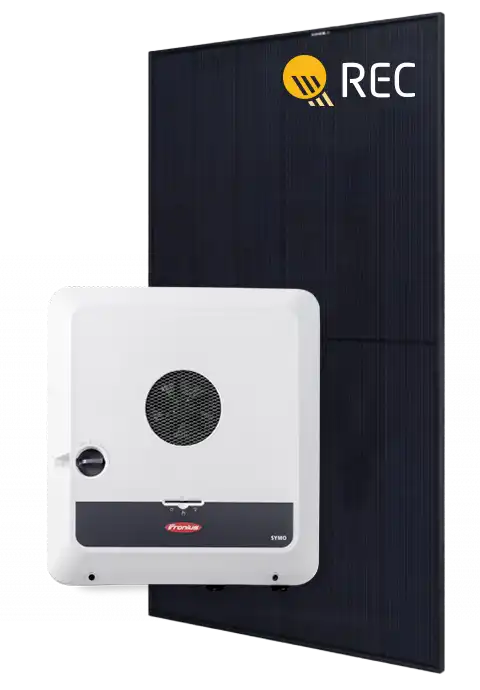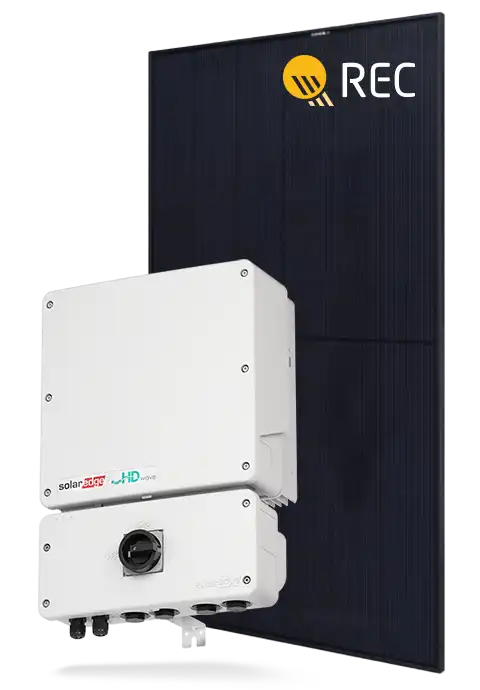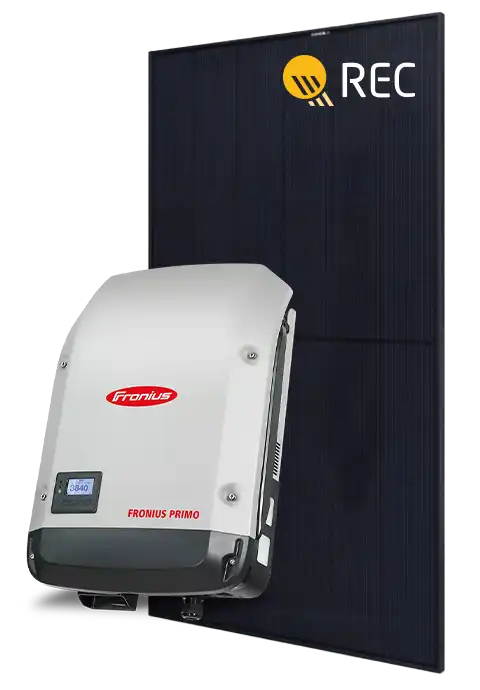Residential Solar Systems
Powering your home with Solar Energy
At Solar Integrity, we understand that you, as a homeowner, are looking for smart, sustainable, and economically ways to reduce your energy bills and make a positive contribution to the environment.
That’s where quality residential solar & batteries can help. We have installed solar and battery systems for thousands of customers, EV chargers and heat pumps in the wider border region from Mansfield to Holbrook, all the way to Falls Creek, Corryong and everywhere in between.
We believe it’s essential for you to understand the benefits and savings that come with harnessing the energy of the sun and we are ready to have this conversation with you.
As a family owned local operator we only recommend quality products, installed with care and expertise to generate maximum long term savings.
If it is not reliable – it was not a Solar Integrity system
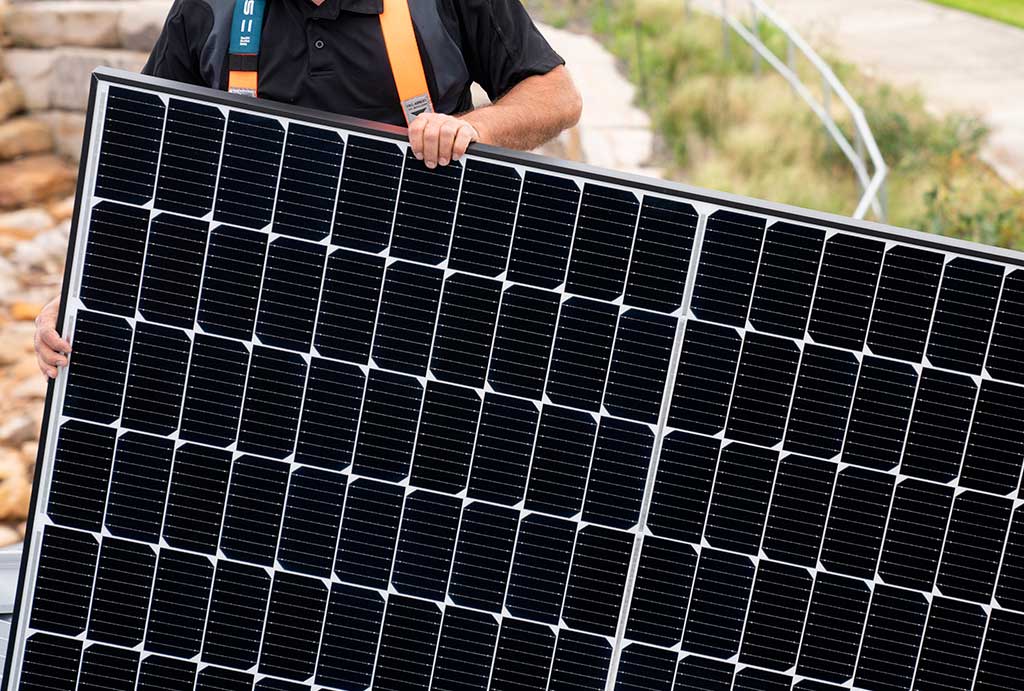
Solar solution tailored for your needs
Choosing the right quality solar solution for your home is a decision that requires careful consideration.
At Solar Integrity, we are dedicated to understanding your specific energy needs. We work with you to tailor a solar system that perfectly aligns with your family’s energy requirements.
We don’t just stop at the installation; we work diligently to ensure the best results for you.
Our solar systems are designed using top-quality products sourced from proven suppliers with comprehensive warranties. This guarantees not only the efficiency of your system but also its longevity.
We believe that your investment in a residential solar system should stand the test of time, delivering consistent performance and energy savings to you and your family.
Quality solar & battery a great investment
We not only make sure the solar panels, inverter solutions and batteries we recommend are award winning and proven in the field.
We also make sure that the other balance of system components from safety switches to the mounting frames are designed to stand the test of time.
While many solar components look similar from a distance when newly installed, there are clear differences in longevity that are recognisable after only a few short years, especially to the trained eye.
We would describe our solar & battery solutions as being designed reliably for our local climate, backed by brand manufacturers and supported by a responsive after -sales service.
Longer lasting PV & battery systems, as our years of experience has shown, simply provide better long-term cost savings to you and your family.
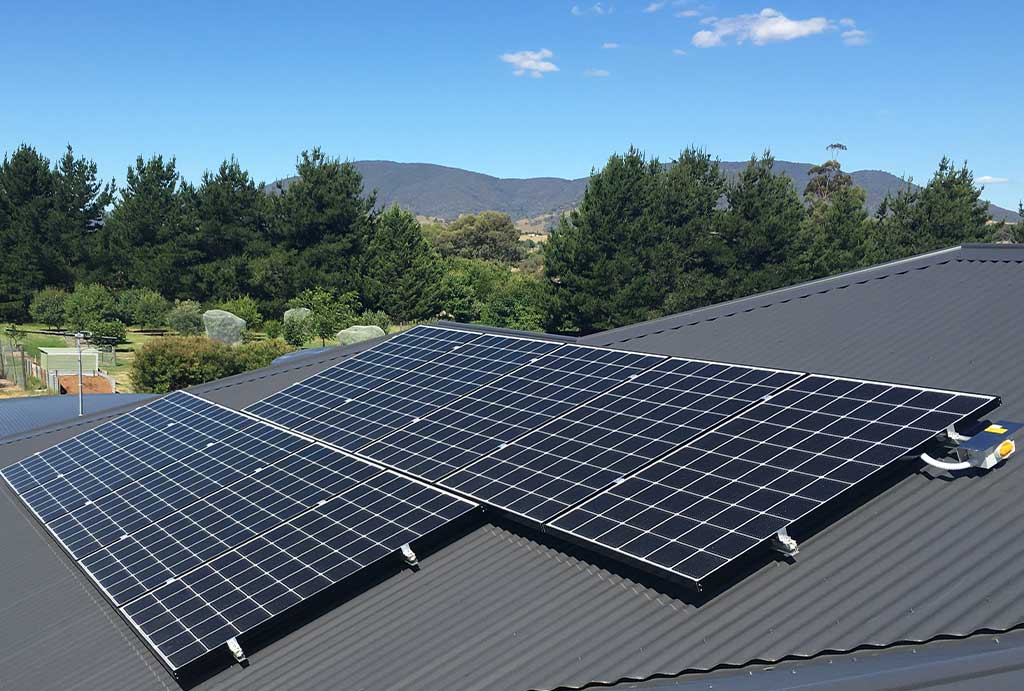
Reasons to go solar
FAQs
What is a Feed-in Tariff?
A Feed-in Tariff is what you are paid by your retailer for the excess power that your solar system has produced that you have not used within the power consumption.
The Victorian and NSW State Governments set the minimum and is reviewed annually. For more information on your FiT you will need to enquire with your retailer. We also suggest that this form part of your research when looking into a suitable retailer. As the price per exported kWh ranges for 5c to 10c per kWh it is worthwhile to shop around for the best deal.
The State Governments set the minimum and is reviewed annually for more information on this you can refer to:
Victoria – Solar Feed in Tariffs for Victoria
NSW – Energy Made Easy
It is certainly to your benefit to compare electricity retailers every so often, say maybe every 2 years. This way you can ensure you are on the best rates for not only what you are paying for your power, but what they are paying you for your excess solar energy. And don’t forget to look at the daily supply charges as well.
To do this we recommend using only government sites, that way there is no bias involved and no one is getting paid a spotters fee/commission.
Here at Solar Integrity we deal with this issue daily, so we can recommend retailer that offer better returns and customer service than others.
We would encourage you to look at our local electricity retailer. That’s right you can purchase and sell your electricity through Indigo Power. Indigo Power are community owned and operated, and located right here in North Eastern Victoria and the Border Region.
Their prices are comparative, they are creating local jobs and investing in renewable energy project locally as well. AND when you ring them, you get to speak to someone local! To look at their prices you can head to Indigo Power or call them on 1800 491739.
What does net metering mean?
Understanding net metering
Net metering is a billing arrangement that allows solar panel owners to receive credit for the excess electricity they generate and feed back into the grid. In essence, it is a two-way street where solar-equipped homes or businesses can consume energy from the grid when their solar production falls short and contribute surplus energy when their panels produce more than needed.
Here’s how it works
- Solar production and consumption – When solar panels generate more electricity than a household or business consumes, the excess is fed back into the grid.
- Two-way metering – A special bi-directional meter records the electricity pulled from the grid and the surplus energy supplied.
- Billing credit – Solar users receive credits on their electricity bills for the excess energy they contribute, effectively offsetting the cost of the electricity they draw during periods of lower solar production.
Benefits of net metering
- Economic incentives – Net metering provides additional financial help for solar system owners. The owners can reduce their electricity bills by receiving FiT credits for surplus energy.
- Grid stability – The two-way flow of electricity enhances grid stability. During peak demand periods, solar users can help meet the increased electricity needs of their communities. On the other hand there is now also the situation when sometimes there is too much solar being produced, and for this reasons batteries will play a bigger and bigger role in enhancing grid stability.
- Encouraging solar adoption –The economic benefits of net metering make solar power more attractive, fostering greater adoption of renewable energy.
Challenges and controversies
While net metering has proven to be a catalyst for solar adoption, it is not without challenges:
- Energy retailer concerns – Some utilities argue that net metering unfairly burdens non-solar customers, as solar users benefit from the grid without paying their fair share for its maintenance. Nevertheless solar FiTs have now become low enough, that the extra profit margins earned by the energy retailer, will actually pay it’s fair share.
- Policy variability – Net metering policies vary widely by region, with some areas offering generous historical credits while others provide less favourable terms.
The future of net metering
As the energy landscape evolves, so does the net metering conversation.
Some regions are exploring alternative models, such as time-of-use pricing and value-of-solar tariffs, to better align with the dynamic nature of electricity demand and production.
Export control has also been implemented, especially for large commercial solar systems. As EVs enter the energy landscape and batteries get added more – our ability to absorb a lot of solar in the middle of the day will improve, and we will be the shifting the use of renewable energy to a 24 hour cycle.
So in summary, net metering plays a pivotal role in the widespread adoption of solar power, offering economic benefits to users and contributing to the electrical grid’s stability.
While it faces challenges and debates in different regions, its potential to transform how we generate and consume energy cannot be understated. As technology advances and policies adapt, net metering will likely remain key in transitioning to a more sustainable and decentralised energy future.
How do I maximise my solar savings
Maximising your solar savings
Simply owning a solar power system is not enough to reap its full benefits. To truly maximise your solar savings, it’s crucial to optimise energy usage, maintain your solar panels effectively, and monitor your energy consumption closely. This FAQ will equip you with the knowledge to make the most of your solar investment.
Optimise your energy usage
Solar panels are most productive during daylight hours, when sunlight is readily available. This is the prime time to shift your energy consumption towards solar power. By aligning your energy usage with your panels’ production, you can utilise the electricity as it’s generated, reducing your reliance on the grid and its associated costs. So for example do your washing always during daylight hours to maximise your solar savings.
Time your energy usage strategically
Start by scheduling energy-intensive tasks, such as dishwasher, washing machine, dryer, and pool pump operation, to coincide with daylight hours when your panels are generating power. If you’re away during the day, consider using programmable appliances that can automatically start and stop their cycles during peak solar production.
Right-size your solar system
The size of your solar system plays a significant role in maximising savings. A system with sufficient capacity can potentially power all your daily activities with solar energy. For smaller systems, prioritise running high-energy appliances one at a time to avoid drawing from the grid.
Regular maintenance and cleaning for optimal performance
While solar panels are generally low-maintenance, they’re not entirely self-sufficient and do require some looking after. Most modern panels are designed for self-cleaning, with rainfall effectively removing dirt and debris. However, depending on your location, regular cleaning may be necessary.
Determine your cleaning frequency
In areas with infrequent rainfall or where panels are exposed to excessive dirt, like the dirt roads around Albury-Wodonga pollen, bird droppings, or sea salt, more frequent cleaning is required to maintain their efficiency. The angle of installation also influences cleaning needs; steeper angles promote better self-cleaning.
Professional cleaning, an option to consider
While you can clean your panels yourself, hiring professionals is a viable option, especially if access is challenging. They possess the expertise and equipment to perform the job safely and effectively. Solar integrity offers a Health Check service – so if you think you system needs a check up – give us a call.
Monitor your energy consumption with modern technology
Modern technology simplifies energy consumption tracking. Several apps such as Solar Analytics or Mondo Monitoring or can connect to your solar panel system, providing real-time insights into your energy habits.
Leverage energy monitoring apps
You can look for apps that offer detailed data, including daily, half-hourly, and even minute-by-minute tracking. These apps can inform you when excess energy is sent to the grid (feed-in credit) and when you’re drawing power from the grid, allowing you to adjust your usage accordingly.
Understanding Feed-in Tariffs
If your system generates more electricity than you consume, the surplus can be fed back into the public grid. Your energy retailer may provide a credit for this excess power, known as a feed-in tariff. They used to be very generous but have reduced in the past years. This is the reason we now recommend batteries, hot water via heat pumps and EV charging as a way to fully utilise your generated solar power.
Monitoring your feed-in activity enhances your understanding of energy flow and enables you to tailor your consumption to maximise these credits.
Smart home integration for enhanced efficiency
For tech-savvy individuals, integrating your solar system with a smart home setup can further optimise energy usage. Smart meters and home energy management systems can automate the process, running appliances when solar production is at its peak and even storing energy in a home battery system for nighttime use.
In summary
Maximising solar savings requires a combination of smart energy use, regular maintenance, and regular monitoring. By grasping the dynamics of your solar & battery system and your home’s energy needs, you can make informed decisions that maximise your investment and contribute to a more sustainable future. Remember, every kilowatt-hour of solar energy used translates into real savings and less CO2.
Should I notify my insurance company that I have solar?
As a responsible homeowner, you may question whether or not to notify your insurance company about this recent renewable energy system upgrade. Overall the answer is yes- as if there is an issue, like a major hail storm even, you have this extra part of your home registered.
Understanding your policy terms
Before making any decisions, reviewing your homeowner’s insurance policy thoroughly is crucial. Some policies may have specific clauses or conditions related to home improvements, including installing solar panels. Understanding these terms will provide insight into whether or not you are required to notify your insurance company. If you do not want to read the 40 plus page policy document, then maybe calling the insurance on their helpline will also get you the right information quickly.
Potential premium adjustments
Informing your insurance company about solar panel installation often does NOT result in a premium adjustment, as the value of the system compared to the overall insured sum is relatively small. If you have a very large system and batteries , lets say with an $80,000 value this might lead to a very slightly higher premium. It’s essential to consider the potential long-term savings on your energy bills and the increased property value. In all cases, the energy savings alone will smash any premium increase, however large or small.
Impact on coverage
While solar panels and home batteries can enhance the value of your property and contribute to energy efficiency, they also represent an additional investment that your insurance provider might want to be aware of. In many cases, informing your insurance company about the installation of solar panels can ensure that your coverage adequately reflects the increased value of your home.
Legal and regulatory considerations
In some insurance policies there may be a requirement for homeowners to inform their insurance companies about specific home improvements, including solar & battery installations. Failure to comply with these requirements could result in complications in the event of a claim.
Coverage for solar panels
Some insurance companies may offer specialised coverage options for solar panels. This coverage can protect your investment in the event of damage caused by covered perils such as fire, theft, or severe weather. Without notifying your insurance company, you might miss out on these tailored coverage options.
Risk mitigation
Solar panels and inverters are susceptible to damage from unforeseen events like any other part of your home. By notifying your insurance company, you ensure that your investment is protected. Without such notification, you risk facing complications when filing a claim related to the PV system.
Deciding whether or not to notify your insurance company is not really a big issue. While it may seem like an additional administrative task, informing your insurance provider ensures that your coverage accurately reflects the value of your home and the investment you’ve made in sustainable energy.
We say, it’s only one phone call, so we suggest to err on the side of caution and call them. We also recommend you take a file note about the time you informed the insurance company of this new home improvement. Ultimately, the choice to notify your insurance company about your solar panels is integral to being a proactive and responsible homeowner.
In summary
Yes, it is advised that you let your insurance company know to assess if you need to increase your coverage.
When looking at the cost of your solar system do not use the amount that you have paid out of pocket. You need to use the full retail value of the system. So full cost before rebates/incentives were deducted. You can refer to your invoice for this information or contact Solar Integrity and we will be able to assist.
What should I be getting paid for the solar that I am sending out to the grid?
The minimum Feed in Tariff (FiT) is set by the State Governments of Victoria and NSW and reviewed annually. It can also vary depending on your retailer. For more information on your FiT you will need to enquire with your retailer. We also suggest that this forms part of your research when looking into a suitable retailer.
Currently you get paid between 5 and 10c per kW hour. This is quite a bit less than in the early days of solar when a high FiT was paid to get the renewable energy industry started. However PV system components have also reduced in coast significantly. For example when it comes to panels the price has dropped for $6 per watt in 2005 to much less than $1 dollar now.
The State Governments set the minimum and is reviewed annually for more information on this you can refer to:
Victoria – https://www.energy.vic.gov.au/renewable-energy/victorian-feed-in-tariff
NSW – https://www.energymadeeasy.gov.au/
Regularly evaluating electricity retailers is a wise move, ideally on a 1 to 2 year basis. Such a practice allows you to verify that you’re benefiting from the most favorable rates for the electricity you consume, as well as ensuring that you receive the best possible compensation for the surplus solar energy you feed back into the grid. It’s also important not to overlook the daily supply charges, which can significantly affect your overall costs.
For the most impartial comparison, we advocate the exclusive use of government-operated comparison websites. This approach guarantees that the information is unbiased, with no hidden agendas or commissions influencing the recommendations.
In addition to these resources, we suggest considering a local option that aligns with community values—Indigo Power. As a community-owned entity serving North Eastern Victoria and the Border Region, Indigo Power offers competitive pricing while contributing to the creation of local employment opportunities and investing in regional renewable energy initiatives.
An added perk of dealing with Indigo Power is the personal touch; when you reach out to them, you’ll be greeted by a local team member who understands your specific needs and the nuances of the community. To review their pricing structure, you can visit their website at Indigo Power or reach out directly by phone at 1800 491739.
By choosing Indigo Power, not only do you potentially benefit from cost savings, but you also support the local economy and the advancement of sustainable energy projects within your own community. This choice empowers you to contribute positively to local growth and sustainability initiatives, ensuring that your decision has a lasting impact beyond just your immediate energy needs.
Our Quality Residential Home Solar Packages
Quality equipment is one thing, but it's the quality installation with a trusted local installer that guarantee a piece of mind
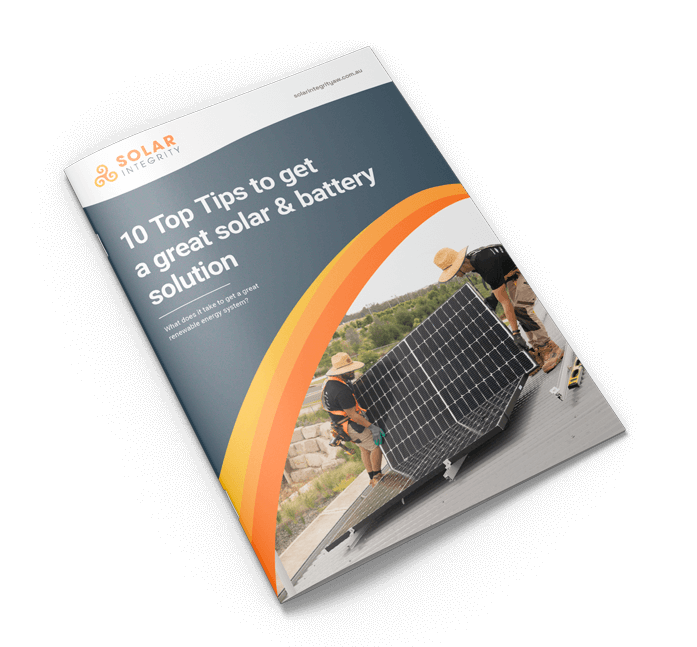
How to get a great solar solution, Free E-book
10 Top Tips to Get a Great Solar and Battery Solution
It's free! We don't want your details. Just click the download button and off you go! No Catch. Why? Well.. We care about what we do and by providing important information to everyone that they can make the best solar & battery choice!
